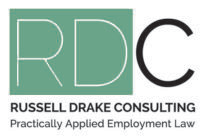For many years’ employees have been advancing leave to new employees (those who have not yet completed 12 months services) to cover any required period off work during the company’s annual shutdown period.
This process has worked well with the amount to advanced leave then deducted from the four (4) week entitlement when this falls due at the conclusion of the first 12 months of employment (the anniversary date)
However, as recent ruling within the Employment Court, Metropolitan Glass & Glazing Ltd v Labour Inspector [2020], has changed the way we need to address this matter.
Section 64 of The Holidays Act 2003 provides that – an employee not entitled to annual holidays at the commencement of the closedown period must be paid 8% of the employees total gross earnings since the commencement of their employment.
Section 35 provides that- where an employee who is not entitled to annual leave at the commencement of the closedown, their anniversary date should be moved to coincide with the commencement of the closedown. This effectively means that they will then have to wait for a further 12-month period prior to their annual leave entitlement falling due.
The Court therefore confirmed that, any agreement to treat some or all of the closedown period as leave in advance can only be in addition to the payment of 8% – i.e. the 8% payment only covers part of the closedown period with the remainder of the closedown then being deemed to be leave in advance – or unpaid leave.
For many employers reading this you will be thinking – why try to fix a problem that didn’t exist, however as this has now been deemed the correct interpretation of the Holidays Act compliance is required.
What is a practical solution to this issue?
Employee (1) – 8% payment is insufficient to cover the full closedown period:
- Pay them 8% of total gross earnings
- Re-set the anniversary date to the commencement of the closedown period
- Confirm whether leave will be paid in advance or whether a period of unpaid leave will apply for the balance of the closedown period
- Deduct the leave in advance from the entitlement when it falls due at the new anniversary date
Employee (2) – 8% payment is greater than needed to cover the closedown period
- Calculate the full value of the 8% payment
- Agree in writing with the employee that they will only receive payment equal to the length of the closedown period
- Re-set the anniversary date
- Agree that the employer will hold the remainder of the 8% payment and make this available to employee as they wish to take leave prior to the new anniversary date
In either of the above options, this will not prevent the employer agreeing to provide leave in advance after the conclusion of the closedown period and prior to the new anniversary date occurring.
If you have a new employee who falls under these provisions and the above causes confusion, please give us a call to ensure that you apply the correct process in your Christmas Closedown pay cycles.
PUBLIC HOLIDAYS OVER THE CHRISTMAS / NEW YEAR PERIOD
Christmas Day – Friday 25 Dec – observed on the day it falls, T1.5 for employees who work this day and an additional day in lieu if this is deemed to be an ordinary day of work for them
Boxing Day – Saturday 26 Dec – as above if the employee is required to work, otherwise the day is transferred to Monday 28 Dec – where, if the employee is required to work this, they will be entitled to T1.5 and an additional day in lieu if this is deemed to be an ordinary day of work for them. If they are not required to work, and it is an ordinary day of work for them, they are paid their relative daily rate of the non-worked public Holiday.
New Years Day – Friday 1 Jan – observed on the day it falls, T1.5 for employees who work this day and an additional day in lieu if this is deemed to be an ordinary day of work for them
The Day after New Year – Saturday 2 Jan – as above if the employee is required to work, otherwise the day is transferred to Monday 4 Jan – where, if the employee is required to work this, they will be entitled to T1.5 and an additional day in lieu if this is deemed to be an ordinary day of work for them. If they are not required to work, and it is an ordinary day of work for them, they are paid their relative daily rate of the non-worked public Holiday.

